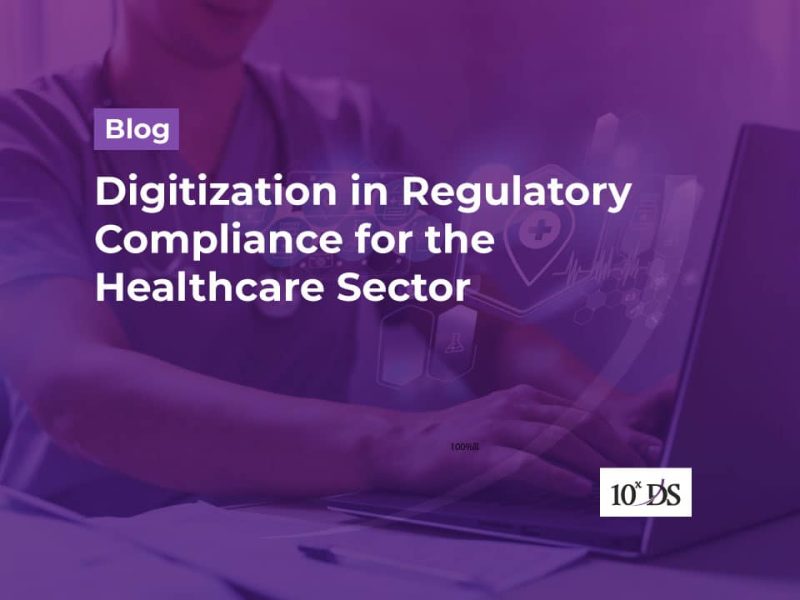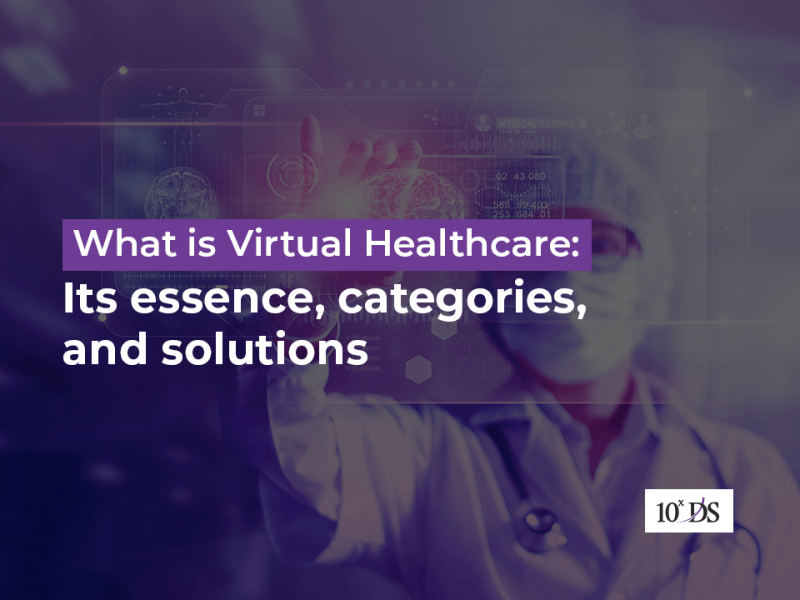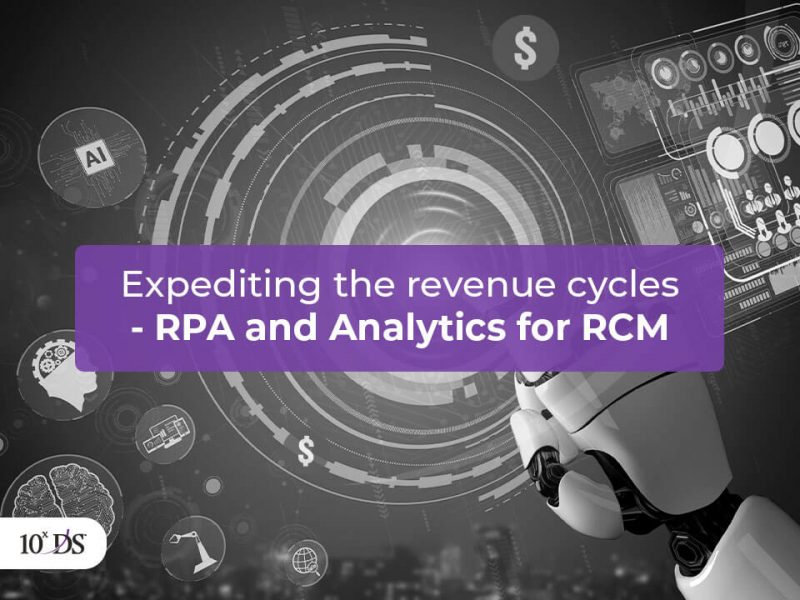
The Role of Automation and AI in Healthcare Supply Chain Management
Managing a healthcare supply chain can be challenging due to the many stakeholders involved, the importance of the supplies at stake, and the individual preferences of doctors, all while keeping costs down and maximising efficiency. More automation is being implemented than ever before to help businesses streamline processes and get rid of old headaches. Executives at healthcare facilities are thinking about ways to reorganise their supply chain management to make operations more efficient and affordable. As hospitals and healthcare systems readjust to life after the pandemic, they hope to do so while simultaneously improving patient care. A reliable healthcare supply chain is crucial for saving the lives of patients. Furthermore, embracing technological advancements is crucial in reaching that goal of increased productivity.
Therefore, it comes as no surprise that hospitals are using technology like patient portals and electronic health records at unprecedented rates. Some may be surprised to learn that inventory management (also called supply chain management) is one area in which hospitals have not fully embraced technology (SCM).
The transition from a paper-based to a digital supply chain has lasting benefits for healthcare companies. Digital healthcare has made healthcare more accessible than ever before by making it faster, safer, more convenient, and cheaper for everyone. The digitization of the healthcare supply chain also allows hospital systems to cut operational costs and spot growth opportunities.
In this article, we’ll break down the components of a healthcare supply chain and outline why it’s crucial for the industry to embrace new technologies in order to improve the efficacy of established supply chains. We will examine the ways in which technology can facilitate the growth of supply chains and the measures necessary to effectively integrate it into existing operations. Okay, let’s get started.
What “Supply Chain Management” means in the Healthcare Industry
Supply chain in the healthcare industry entails the systematic acquisition and distribution of goods used in the provision of health care, such as pharmaceuticals and medical equipment. Managing the flow of medical supplies and services from the point of origin all the way to the end user is the job of healthcare supply chain management. Products expiring before their time, high demand for specific products, and theft all present unique challenges to the healthcare industry’s supply chain.
As a result, many medical professionals waste money by purchasing unnecessary items or by stocking up on excessive quantities of drugs and other supplies. Unlike in many other industries, a well-functioning supply chain in healthcare can have a significant impact not only on healthcare businesses but on people’s health and lives.
Inadequate data reporting, poor product uniformity, increasing regulatory requirements, and a general lack of automation all contribute to the problems. Although there are numerous challenges in supply chain management, the most significant ones include theft, hoarding, product expiration, out-of-stock issues that can lead to high delivery costs, and an unjustified increase in inventory costs due to demand. These issues, along with others, contribute to the overage in supply costs.
To what extent does the healthcare sector make use of supply chain management?
Producing, distributing, and delivering medications and other healthcare supplies to patients is all part of the healthcare supply chain, a complex network of systems, elements, and procedures. This intricate global system has many built-in safeguards to ensure the timely production and distribution of medicines and other medical supplies, even in the face of pandemics or natural disasters. The most crucial defence is the supply chain’s preparedness for and response to potential disruptions in any one link across a diverse, preexisting global network.
Many organisations and individuals are involved in the healthcare supply chain, including those responsible for creating pharmaceutical quality standards, hospitals, health systems, pharmacies, and health insurance companies. However, producers and retailers play an essential role in the healthcare supply chain.
Producers play a critical role in the delivery of healthcare.
Manufacturers are the first link in the hospital supply chain, as they are responsible for creating the necessary medications and medical supplies. From the factory to the distributors and, in some cases, the pharmacy or hospital, manufacturers have complete control over the distribution of their products.
The distributor is the second link in the healthcare supply chain.
Distributors purchase prescription drugs and other healthcare supplies in bulk from manufacturers and carefully manage sizable inventories at strategic locations across the region. Some distributors focus on a select group of customers, like nursing homes, or a unique type of product, like biologics.
Health Care Supply Chain Management’s Crucial Role
The healthcare industry relies on its supply chain to pinpoint weak spots across different divisions and propose fixes. Improved health outcomes and increased funding for global health are two of its primary goals.
Increased operations, efficient resource utilisation, happy employees, effective treatment, and satisfied patients are just some of the outcomes that benefit from a well-functioning supply chain in the healthcare industry.
Integrating hospital departments, operations, and the revenue cycle is made easier with effective supply management. The supply chain can be viewed as a crucial backend application that links together all the other processes.
Hospitals rely on supply chain management to ensure that their patients always have access to the medications and supplies they need, that inventory is used efficiently, that patient care is constantly enhanced, and that human and pharmaceutical errors are minimised across all departments.
This can be achieved through a number of measures, including the incorporation of technologies that encourage supply chain digitization, the optimization of processes, and the integration of digital subsystems.
To what extent does technology play a role in the healthcare supply chain?
Data analytics, artificial intelligence, the internet of things, and blockchain are just a few examples of the cutting-edge, disruptive technologies that are finding their way into supply chain management systems, all of which are contributing to the healthcare industry’s rapid expansion, improved efficiency, and increased safety.
The healthcare supply chain market has been predicted to grow from $2.2 billion in 2020 to $3.3 billion by 2025, according to Markets & Markets. Key factors that have contributed to this growth include the introduction of cloud-based solutions, reduced operating costs, improved efficiency, and rising profits. SCM’s widespread adoption, especially in the healthcare industry, has had far-reaching positive effects on people’s health and well-being.
How can new technologies make a difference?
If medical professionals face unexpected shortages while treating patients, the outcome could be fatal or catastrophic. Fortunately, developments in technology have the potential to make hospitals’ supply chains more robust, making them less vulnerable to shocks. The following are some of the ways in which cutting-edge modern technologies can help us move toward more efficient digital healthcare with strong medical supply distribution.
Enhancing Efficiency and Resilience through Healthcare Supply Chain Automation
Healthcare supply chain automation is rapidly transforming the medical industry by addressing long-standing inefficiencies and vulnerabilities in logistics and inventory management. Traditionally, healthcare systems have relied on manual processes to manage everything from pharmaceutical supplies to surgical instruments — leading to errors, delays, and stockouts. By automating supply chain functions such as procurement, inventory tracking, and order fulfillment, hospitals and clinics can now achieve higher levels of accuracy, speed, and cost control. Automation also helps in maintaining regulatory compliance by ensuring proper documentation and traceability of medical goods throughout the supply chain.
The benefits of healthcare supply chain automation go beyond operational efficiency. In a sector where lives depend on the timely availability of equipment and medications, automation enables real-time visibility and forecasting to prevent shortages or overstock situations. Advanced technologies like IoT-enabled sensors, robotic process automation (RPA), and AI-driven analytics are being used to predict demand, monitor inventory in real time, and trigger replenishment automatically. This significantly reduces waste, enhances patient care, and frees up clinical staff to focus more on treatment than administrative logistics.
Moreover, the strategic value of healthcare supply chain automation is becoming increasingly clear in the wake of global health crises. During pandemics and emergencies, healthcare systems need agile and scalable supply chains to respond swiftly to surges in demand. Automation equips healthcare providers with the tools to adapt rapidly, maintain continuity, and collaborate better with suppliers. As the healthcare industry continues its push toward digital transformation, healthcare supply chain automation is not just a trend — it’s a critical enabler of resilient, responsive, and patient-centric care delivery models.
AI in healthcare management
AI in healthcare management is redefining how healthcare systems operate by introducing intelligent automation, data-driven decision-making, and predictive insights into every aspect of medical administration. From patient scheduling and resource allocation to diagnosis support and outcome prediction, artificial intelligence is streamlining complex processes and enhancing the efficiency of healthcare services. Hospitals and healthcare administrators are increasingly adopting AI in healthcare management to reduce human error, cut operational costs, and improve the accuracy and timeliness of care delivery.
One of the most impactful applications of AI in healthcare management is in predictive analytics and patient flow optimization. By analyzing large datasets from electronic health records (EHRs), wearable devices, and hospital systems, AI can anticipate patient admission rates, identify potential readmissions, and recommend proactive interventions. This leads to better resource planning, reduced wait times, and improved patient satisfaction. AI-powered chatbots and virtual assistants are also being used to handle administrative tasks such as appointment scheduling and insurance verification — improving operational efficiency without overburdening staff.
Furthermore, the strategic integration of AI in healthcare management supports more personalized and population-based healthcare strategies. With the ability to analyze trends across vast populations, AI enables healthcare systems to identify at-risk groups, monitor chronic disease patterns, and design targeted care programs. This shift from reactive to proactive care not only enhances patient outcomes but also contributes to long-term cost savings. As healthcare organizations continue to prioritize innovation, AI in healthcare management is proving to be a pivotal force in driving smarter, more responsive, and sustainable healthcare ecosystems.
Monitoring via the Internet of Things and Radio Frequency Identification
Hours of productivity could be lost because of something as simple as tracking down an asset. RFID (Radio-frequency identification) tracking systems built into hospital supply chain software that is Internet of Things (IoT) enabled could save both money and time.
A real-time location system (RLS) can be used to locate, track, and monitor the assets. Automated inventory tracking does more than just improve efficiency in the healthcare supply chain; it also provides complete system visibility.
Automation of tasks by robots (RPA) and intelligent automation
Implementing an RPA or intelligent automation system in the healthcare supply chain automates previously labor-intensive, repetitive, and manual tasks. In most cases, it reduces the amount of effort and resources put into a supply chain and eliminates the possibility of problems caused by human error.
Productivity and expenses are both boosted by the automation of routine tasks. A warehouse’s productivity and income can both benefit from a technological upgrade that utilises RPA devices.
Conclusion
Integrating the right technologies, like AI, blockchain, automation, data analytics, IoT, RFID, etc., into healthcare supply chain management can have a significant impact. Businesses in the healthcare sector need to innovate in order to survive in today’s market. Automating supply chain management is one approach to taking a more proactive stance with inventory and supply as well as increasing efficiency, reducing waste, and saving money.
Talk to our experts right away if you’re interested in digitising and transforming your supply chain!


